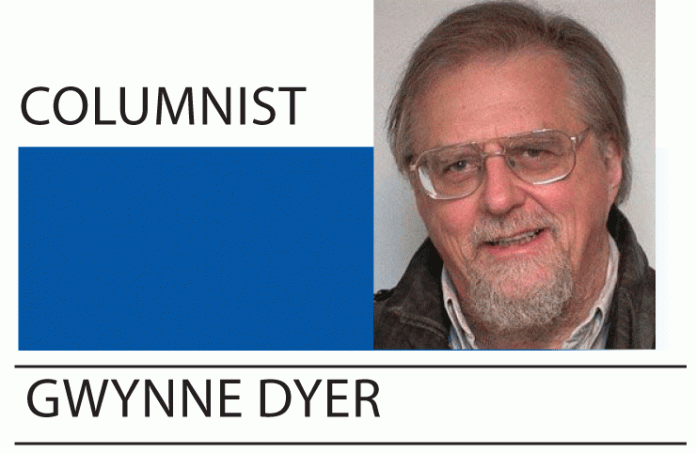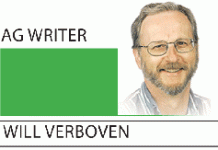“Joseph Kabila boycotted the election and is preparing an insurrection because he is the AFC,” said President Félix Tshisekedi of the Democratic Republic of Congo last October, and lo! It is coming to pass just as he predicted. But you can’t tell the players without a programme, so a little bit of explanation first.
Well, a lot, really. Please be patient. It’s quite a tangled tale
The Democratic Republic of Congo (DR Congo or just DRC), so-called to distinguish it from a much smaller country on the other side of the river that also calls itself ‘Congo’, is the largest country in sub-Saharan Africa and the second most populous (115 million people). The eastern part has been at war for the past 30 years, and it’s about to get worse.
The fighting has been almost continuous for two reasons. One is that the eastern part of the country is very rich in scarce minerals — gold, copper, cobalt, tin and above all coltan, which is essential for smartphones and other electronic devices. (DR Congo has 60% of the world’s coltan). The government is 1,600 km away, and most of the mineral wealth is stolen.
The other reason is that just across the DRC’s eastern border is Rwanda, where the Tutsi minority suffered a genocide in 1994. With the help of neighbouring Uganda, the Tutsis fought back and they now effectively rule Rwanda – but the Rwandan president, Paul Kagame, also takes a keen interest in the eastern DRC. In fact, he sort of controls it.
There are also Tutsis in the eastern DRC, and Rwanda has created various militias from among them over the past three decades to keep the ‘génocidaires’ (perpetrators of the genocide who fled to the DRC) at bay. However, the same militias also ensure that the minerals dug out in the eastern DRC by tens of thousands of small-scale miners actually go to Rwanda.
In March 2023, the DRC’s finance minister Nicolas Kazadi reported that the country was losing about $1 billion annually due to minerals reaching the market illegally through Rwanda. That’s almost exactly the sum that Rwanda reported earning from mineral exports in 2022, although it has very limited reserves of tin, tungsten, tantalum, gold, coltan and the rest.
It’s a highly profitable game, but it can only go on so long as the DRC’s government in Kinshasa is weak and the Congolese army is corrupt. That hasn’t generally been a problem for Rwanda (or for Uganda, which also takes its share of the loot), but once in a while they need to change the president in Kinshasa.
The first time they did that was in 1997, when they found a washed-up Congolese ex-revolutionary called Laurent-Désiré Kabila running a bar and brothel in exile in Tanzania and made him the president of the DR Congo.
Kabila, then a Communist, had worked with Che Guevara when he showed up in the country in 1965 on a quixotic mission to spread the Cuban revolution in Africa, but he ended up running a secessionist Marxist mini-state in the mountains of South Kivu province. That vanished in 1988, and so did he – until the puppet-masters of Rwanda and Uganda found him.
Rwanda’s Kagame and President Yoweri Museveni in Uganda needed a Congolese face for their fake revolution, and Kabila suited their purposes perfectly. After a bloody campaign he was duly installed as the new president in Kinshasa – but he subsequently fell out with Kagame and Museveni, and was assassinated in 2001.
Ten days later his son Joseph Kabila was made president at the age of 29 (by whom it was never clear), but he won elections of a sort in 2006 and 2011. Joseph ran an authoritarian and corrupt regime, but he was certainly more than a puppet. He was finally forced to step down in 2018 – whereupon his links with Kagame and Museveni began to revive.
The militia that is overrunning the mineral-rich parts of eastern DR Congo now, made up mostly of Congolese Tutsis and stiffened as usual with some thousands of Rwandan and Ugandan regular troops, is called M23. It completely controls two provinces and is advancing into a third.
M23 is part of a broader coalition called the Congo River Alliance (AFC) – and they all really work for Rwanda and Uganda, though many of them don’t know it. As Joseph Kabila’s close ally Ramazani Shadary said last month, “Our objective is to regain power democratically in the DRC.” Or undemocratically. Who cares?
A handful of people, some Congolese and some not, have determined the fate of more than a hundred million ordinary citizens of the DRC for thirty years. They could not have done worse if they tried – but it looks like they will go on trying. The tail is still wagging the dog.
Welcome!Log into your account









